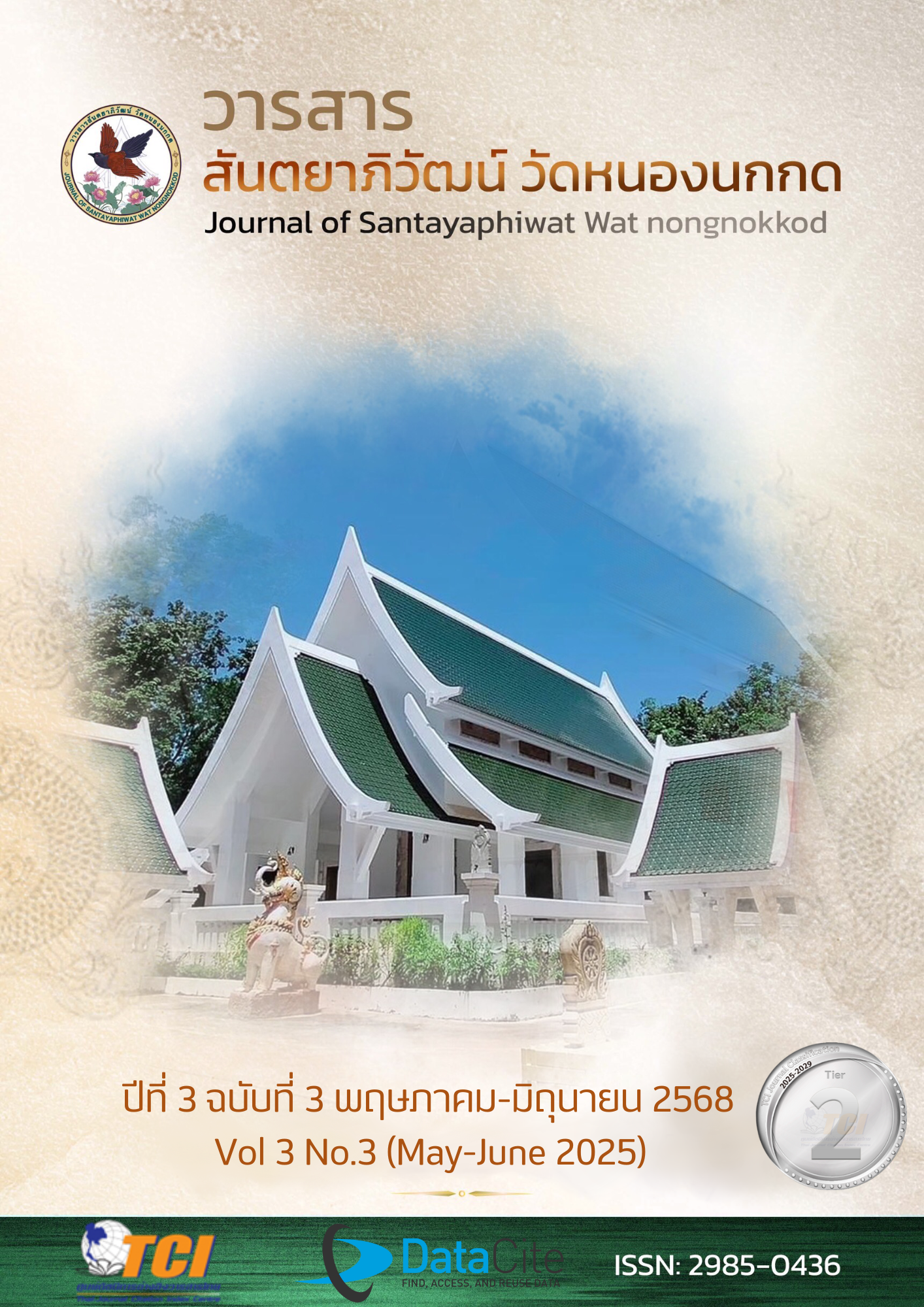ANALYSIS OF DIGITAL LEADERSHIP COMPONENTS OF SCHOOL ADMINISTRATORS UNDER THE OFFICE OF PRIMARY EDUCATIONAL SERVICE AREA, LOEI AREA 2
Keywords:
Digital Leadership, School Administrators, Confirmatory Factor AnalysisAbstract
This research aims to study the components of digital leadership among school administrators and examine the consistency of the digital leadership component model with empirical data. The sample consisted of 300 participants under the Loei Primary Educational Service Area Office 2, comprising 30 school administrators and 270 teachers, selected through proportional stratified random sampling using district and position as stratification criteria, following Hair et al. (2018). The research instrument was a 5-level rating scale questionnaire covering 4 aspects with 99 items, having a reliability coefficient of 0.949. Data were analyzed using mean, standard deviation, and confirmatory factor analysis.
The findings revealed that: 1) Digital leadership components of school administrators consist of 4 components with 18 observable variables: digital technology vision (4 indicators), digital learning culture creation (4 indicators), digital communication (5 indicators), and digital knowledge and skills (5 indicators). 2) The digital leadership component model showed excellent consistency with empirical data, as evidenced by a relative chi-square value (χ²/df) of 1.29, RMSEA of 0.031, GFI of 0.947, AGFI of 0.923, SRMR of 0.040, NNFI of 0.972, CFI of 0.979, and NFI of 0.913. The factor loadings of all variables were statistically significant at the .01 level. The variables with the highest factor loadings were word processing program usage (λ = 0.823), security usage (λ = 0.714), and vision creation (λ = 0.691), respectively.
References
กระทรวงศึกษาธิการ. (2559). แผนพัฒนาการศึกษาของกระทรวงศึกษาธิการ ฉบับที่ 12 (พ.ศ. 2560-2564). กรุงเทพฯ: สำนักงานปลัดกระทรวงศึกษาธิการ.
กิตติทัศน์ วงศ์ศรีดา. (2567). ภาวะผู้นำดิจิทัลของผู้บริหารสถานศึกษา. วารสารศึกษาศาสตร์, 12(48), 226.
ชุติสันต์ เกิดวิบูลย์เวช. (2559). การสื่อสารดิจิทัลและสื่อใหม่. กรุงเทพฯ: สำนักพิมพ์มหาวิทยาลัยศรีปทุม.
ธนากร จันทะนาม. (2563). ภาวะผู้นำของผู้บริหารในยุคดิจิทัล. วารสารมหาวิทยาลัยราชภัฏร้อยเอ็ด, 14(2), 35-45.
พระธนุพงษ์ วงฺสเมธี. (2563). การสร้างวัฒนธรรมการเรียนรู้ดิจิทัลในองค์กรการศึกษา. วารสารมหาจุฬานาครทรรศน์, 7(6), 124-138.
วิชยานนท์ ทรัพย์ถาวรธานี. (2567). การสังเคราะห์องค์ประกอบภาวะผู้นำดิจิทัลของผู้บริหารสถานศึกษา. วารสารศึกษาศาสตร์, 15(2), 45-62.
สำนักงานเขตพื้นที่การศึกษาประถมศึกษาเลย เขต 2. (2567). ข้อมูลพื้นฐานสำนักงานเขตพื้นที่การศึกษาประถมศึกษาเลย เขต 2. เรียกใช้เมื่อวันที่ 15 มีนาคม 2567 จาก https://bigdata.loei2.go.th/data/tablePerson.php?op=3.1&tab1=active
สุกัญญา แช่มช้อย. (2561). การบริหารสถานศึกษาในยุคดิจิทัล. กรุงเทพฯ: สำนักพิมพ์จุฬาลงกรณ์มหาวิทยาลัย.
Bream, M. (2016). Digital leadership: Changing paradigms for changing times. Corwin Press.
Denis, D. J. (2021). Applied Univariate, Bivariate, and Multivariate Statistics Understanding Statistics for Social and Natural Scientists, With Applications in SPSS and R. John Wiley & Sons.
Sheninger, E. (2020). Digital leadership: Changing paradigms for changing times (2nd ed.). Corwin Press.
UNESCO. (2019). Digital technology in education. Paris: UNESCO Publishing.









